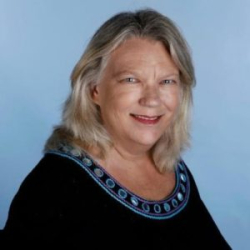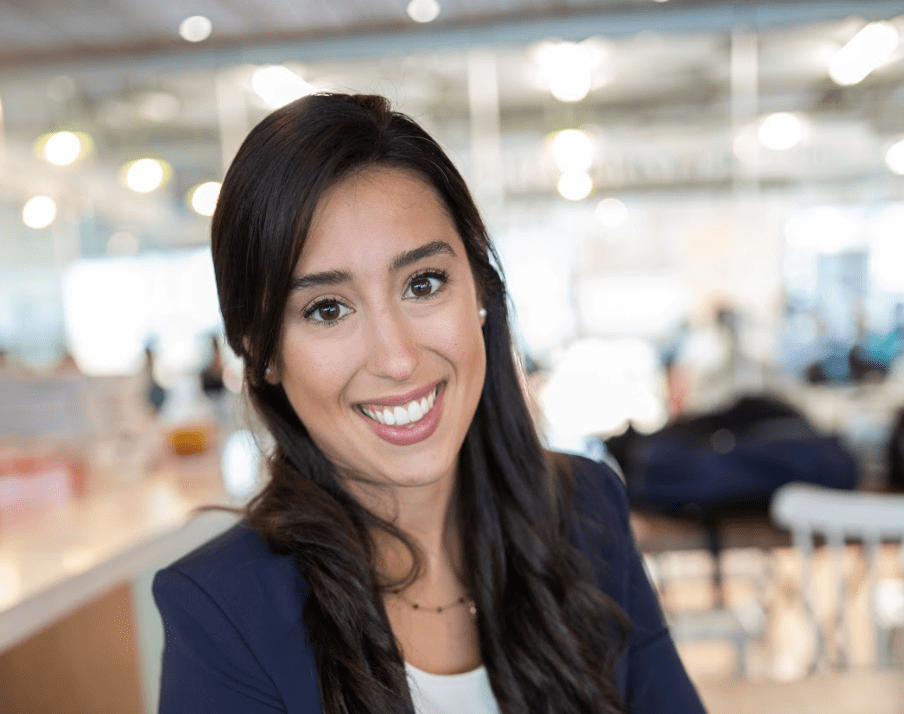By Nancy Dahlberg
Miami Angels just wrapped up a banner 2018, investing $3.2 million into 11 startups.
For South Florida’s largest Miami angel network, now 115 members strong, 2018 was the best year to date. But the numbers don’t tell the whole story.
“We’ve grown, which has really increased the power of our investment dollars,” says Rebecca Danta, managing director of the network. “We’ve seen Miami Angels become a powerful platform.”
More than money, it’s about the introductions Miami Angels can make and even the new funds it can spawn to help South Florida’s entrepreneurs. It’s also about being there to make important follow-on investments as the ecosystem evolves.
Danta took over the helm of Miami Angels nearly a year ago after former director Raul Maos was named Miami program director for the Knight Foundation. But she didn’t miss a beat.
Consider this: In 2018, Miami Angels helped its portfolio companies raise over $10 million through direct introductions to other strategic investors throughout the U.S., such as national VCs First Round Capital and Insight Venture Partners, Danta said. So again it’s not just about the money, it’s getting the word out about the quality offerings the Greater Miami area offers.
“From 2017 to 2018 we saw a big increase in the number of deals we are seeing,” said Danta, who joined Miami Angels as an associate in 2017. The companies receiving new investments in 2018 included BabySparks, CarePredict, PickUp (actually a Dallas-based company that has a big Florida presence) and one other that didn’t want to be named.
And as Miami Angels has grown and evolved, along with the ecosystem, it’s natural that new funds would be spawned too. Nico Berardi, the inaugural managing director of Miami Angels (then called, inexplicably, AGP), left the post to pursue an MBA at Harvard. He did that, and now he’s back in Miami and planning to launch a $60 million seed fund (details to come).
Nearly all the seed funds in town, such as Berardi’s new fund, Krillion Ventures, Ocean Azul, Las Olas Venture Capital and others, are members of Miami Angels. “What we are providing these funds for a nominal cost of membership — you are getting another analyst,” said Danta. “We’re seeing 50 deals per month. Last year we saw more than 600 deals, highly vetted by our staff.”
Miami Angels sources many of its own deals, and is out there scouting throughout Florida. Daniel Herrera, Miami Angels’ director of investments, is a critical part of that effort.
Danta tells about how Herrera brought Plantation-based BabySparks to the network’s attention after meeting the founder, Gustavo Rodriguez, at a Florida Venture Forum conference last May. “Awesome company, super smart, scrappy founder. … We introduced him to 500 Startups. He participated in the Road to Series A accelerator … He didn’t have a lead investor. We introduced him to Ocean Azul, who led the round. That is the value we provide.”
Members were able to invest in the Plantation-based senior-care tech startup CarePredict, a more later-stage company than Miami Angels generally invests in, because CarePredict’s lead investor and a Miami Angels member, Secocha Ventures, offered the opportunity.
“Our goal is to invest in every top entrepreneur in Florida,” Danta said.
And finally, as the ecosystem evolves, follow-on activity is increasing too, and Miami Angels is also a barometer of that. Among the 11 investments in 2018 were six follow-on investments: WherebyUs, Home61, Blanket (formerly Gramercy), RawShorts, Feathr and Eventplicity (the latter two are Gainsville-based companies).
To be sure, the year capped off a solid run for Miami Angels. Since 2014, the angel group has invested $10.6 million across 28 companies. They are the second most active investor in the state by deal count, according to Pitchbook.
“We’re feeling very excited about 2019 given the outlook of deals for the first half of the year and general interest from investors in this asset class,” said Danta. “It’s also the first year we’re going to have two full-time employees for a full year — fingers crossed! — and we’re excited about the capacity that gives us an organization to find and invest in the best deals.”
As for new deals? “We have a few cooking in the oven.” Stay tuned.
Here are some more excerpts from my recent conversation with Danta.
How does the Miami Angels process work?
We bring two to three companies to pitch after they have gone through multiple rounds of screening. 60 percent of companies that make it to a pitch night go on to deal review so we are seeing really quality companies once they go to pitch night. Members lead the deal review process and if they end up investing they bring it back to the group and it’s a pass the hat model for whoever wants to invest. The average for a new deal is 15 investors. The average deal size is about $330,000.
What do you look for in new members you bring on?
We really look for the folks who are hardworking, serious, humble people, not the Miami shiny objects. You don’t have to have experience in angel investing – that is why we do our angel education workshops – but you do need to have business and financial acumen and relevant professional experience.
We are getting a lot of transplants from California and the Northeast. These folks do have that native tech experience you don’t find as much in Miami. At the same time, we don’t want to shy away from folks new to the asset class. We believe that is part of building an angel group and an ecosystem in Miami … but at the same time the tech investors help the newer ones and often lead the education workshops and the deals. In our recruiting, we try to find that balance.
We are now at a very healthy size and not interested in growth for the sake of growth. We have 50-60 members for pitch night, which is a great number. We are looking to grow strategically.
What do you see as a challenge going forward?
One thing I think we have improved on is showing that you can very much raise a seed round here, maybe a Series A. For the later stage capital, we are not seeing that here yet. We aren’t seeing the partners of the bigger companies coming to Miami yet. As an ecosystem of investors, we need to work on that.
What do you look for in an investment?
Huge market. The ability to scale, ideally 100x return potential. We look for founders who are humble, ambitious, willing to take feedback but at the same time have a strong vision for their company. They have the ability to build a product that their customers absolutely love.
We invest in team over product 100 percent. In Blanket, we invested because of the founders … and they ended up pivoting and we were with them and invested after the pivot. With Caribu, we believe Max and Alvaro are a winning team and they will find a way to make this work, if not the next venture.
We mainly invest in software – because of our member’s expertise. Last year, we brought in more investors that knew health-tech and now we have a small cohort that can lead deals in that space.
Tell me about some of your mistakes, because we all make them.
In 2017, we fell in love with the product [despite the team] and we shouldn’t have. Also, we learned don’t be the first money in. The lesson is we need to make sure the founder is able to raise the rest of the capital [to achieve their growth].
What’s your goal for 2019?
We would like to see more of our membership deploying capital. More deals and more dollars. That’s our goal.
READ MORE ON REFRESH MIAMI: Meet Mark Volchek of Las Olas VC: A Q&A about his fund, his outlook and advice for startups.
Follow Nancy Dahlberg on Twitter @ndahlberg and email her at [email protected]
- Tech and politics do mix at 2024 Miami Tech Summit, with eye on the future - April 18, 2024
- #MiamiTech Everything: Seen and heard in April - April 17, 2024
- 8+ things to know in #MiamiTech: Dapta and Siprocal raise funding, plus news from Jeff Bezos, MoonPay, Sustainable Skylines, Freebee & more - April 11, 2024





